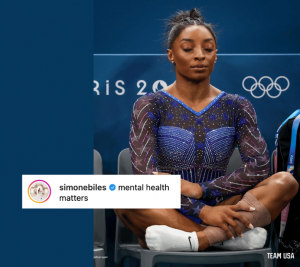By Lacie C. Blankenship
From back pockets to bedside tables, we carry little windows to the world everywhere we go. Social media applications like Facebook, Instagram, TikTok, X, and YouTube enable users to travel across the globe in seconds while offering intimate immersions into the lives of friends and strangers with a simple click and scroll. This new access to worlds near and far, coupled with thriving online communities, has encouraged people to quickly adapt to being only a social media comment, like, reply, or stitch away from their friends and favorite influencers. The new age has ushered in a unique opportunity for sharing and storytelling, especially for brands optimizing the digital space by participating in the influencer (creator) economy. But what happens when influencers are sharing but not engaging, or in other words, disabling social media comments and not letting their audience express their voice? New research published in the Journal of Marketing explores this question and offers insight into the risks that influencers should consider before restricting their comment section, even when the comments are mostly negative.
The influencer era
 What is a social media influencer?
What is a social media influencer?
A social media influencer, often referred to only as an “influencer,” has built a social media following by sharing digital content on one or more social media channels. Most influencers have a niche they specialize in but often share a combination of content, including personal stories and branded content. For example, famous lifestyle influencer Alix Earle is known for her candid get-ready-with-me videos where she does her makeup and hair and puts together outfits while talking about her life as if she were on FaceTime with a friend. Earle’s rise on social media has brought varying partnerships, including those with Benefit Cosmetics, Hero Cosmetics, and Gordon Ramsey. Earle and her social media success landed her a place on Forbes Lists (Top Creators and 30 Under 30 – Social Media) and has even helped her to establish an endowed scholarship at her alma mater.
There is no one right avenue to influencer marketing. Many people have found themselves in the influencer category, making liveable incomes from it, and some have even found fame through it, like musician Zach Bryan, who signed a record deal after finding TikTok fame. Some influencers pursue social media full-time, while others balance it with full-time or part-time jobs, caregiving responsibilities, or other commitments. Teachers, corporate professionals, stay-at-home caregivers, and students alike have embraced the creator economy, demonstrating that anyone with passion, creativity, and drive can succeed.
Thriving with engagement
Influencers thrive by building and fostering meaningful connections with their audiences by sharing personal stories, asking for opinions, and routinely engaging in dialogue. Due to the intimate nature of these personal exchanges, it’s common for viewers to find themselves invested in the lives of influencers. This sense of closeness feels justified by the influencer’s strategies to reel viewers in, like asking which shirt looks better or sharing private moments, like the behind-the-scenes of an engagement. This onscreen intimacy, driven by the personal touch and authenticity that influencers bring to their content, makes followers feel like they are part of an inner circle. This sense of connection is appealing and crucial for building trust and loyalty for influencers.
New meaning to word-of-mouth marketing
This unique relationship between an influencer and a trusted follower opens the door for a trusted voice to vouch for a consumer good, bridging the gap between shoppers and brands and making promotion content feel more relatable and trustworthy than a traditional advertisement. It also provides a unique scene for influencers to integrate branded messages into their narratives, drive higher engagement, cultivate meaningful consumer relationships, and establish brand partnerships.
The good, the bad, and the ugly comments

Simone Biles, Instagram
Why do social media influencers disable comments or restrict commenting?
From the outside looking in, it’s easy to see the camera-ready smiles, LTK links, and OOTDs (outfit of the day) posts and assume that influencers’ lives are carefree and glamorous, but cyberbullying and hateful comments are pervasive for influencers regardless of celebrity status. The interactive nature of social media, which allows influencers to build close-knit communities, also puts influencers at risk of harsh criticism and overconsuming hate. A number of influencers and celebrities, including Simone Biles, Addison Rae, Hailey Bieber, Oprah, and Taylor Swift, have opened up about their own personal struggles with mental health and have publicly navigated the fine line between managing their mental health and social media expectations. As a result, these public figures may strive to create a safer and more positive digital environment for themselves and their audiences, often by limiting social media comments. However, recent research suggests that this well-intentioned strategy may generate unintended negative consequences.
Why shouldn’t influencers disable comments?
The study, “No Comments (From You): Understanding the Interpersonal and Professional Consequences of Disabling Social Media Comments,” by Freeman Wu, Assistant Professor of Marketing at Vanderbilt Owen Graduate School of Management, and Michelle E. Daniels, Assistant Professor of Marketing at the University of Alabama’s Culverhouse College of Business, explored the relationship between disabling social media comments and influencer likability and persuasiveness.
The study found that “influencers who disable social media comments are less persuasive and likable than those who do not, even when the displayed comments are mostly negative in their content,” according to a blog the researchers wrote for the American Marketing Association. The researchers discovered that when influencers prevent viewers from commenting, they are viewed as less open to feedback, making it harder for audience members to connect and engage with the influencer.
“We find that turning off comments is more costly for an influencer’s reputation than leaving them on, even when the displayed comments are mostly negative in nature,” the authors said.
Insight for influencers

Professor Freeman Wu
Wu and Daniels’ research emphasizes the inherent tension between influencer’s mental health and social media engagement. Fortunately, the researchers also find that influencers who feel the need to disable comments pose less risk to their reputation and audience engagement, at least in the short run, if they can communicate a legitimate reason for doing so, like if they are experiencing a personal loss or navigating mental health challenges.
“Global spending on influencer marketing campaigns reached $34.1 billion in 2023 and is projected to surpass $47.8 billion by the end of 2027. Therefore, seemingly innocuous online activities [such as disabling comments haphazardly] could have important professional ramifications for influencers’ brand partnerships,” the authors write.
“We hope that by gaining a better understanding of when and why consumers penalize influencers and celebrities for turning off social media comments, we can empower these public figures to make more informed online decisions that could ultimately affect both their mental and professional well-being,” says Wu.
Backed by research
Published by the Journal of Marketing in April 2024, the study, “No Comments (From You): Understanding the Interpersonal and Professional Consequences of Disabling Social Media Comments,” by Wu and Daniels can be accessed digitally.